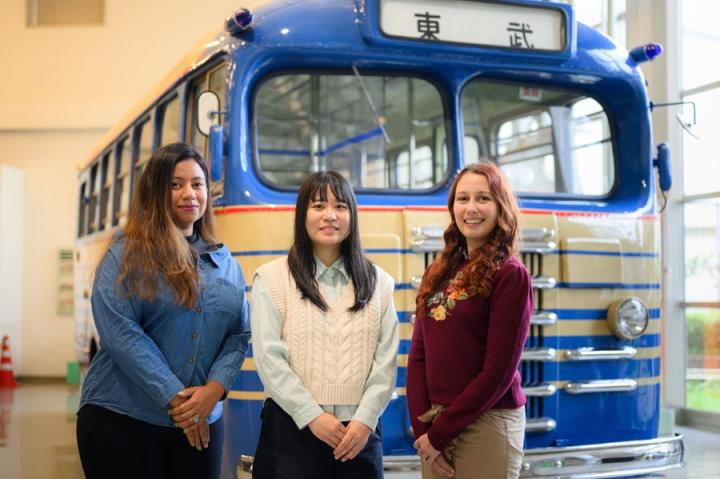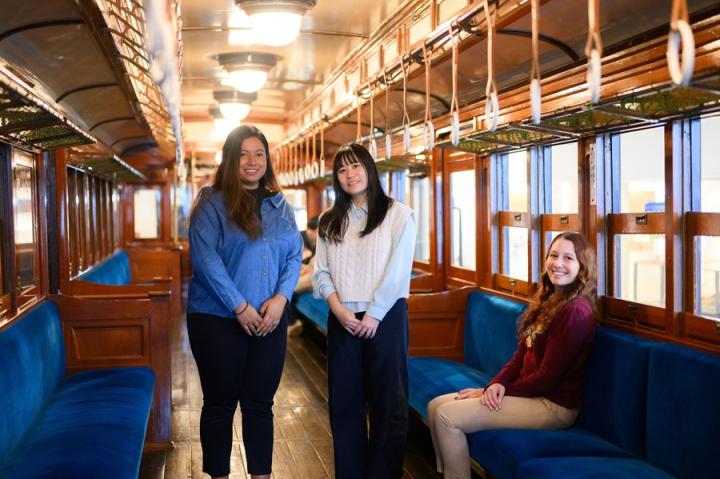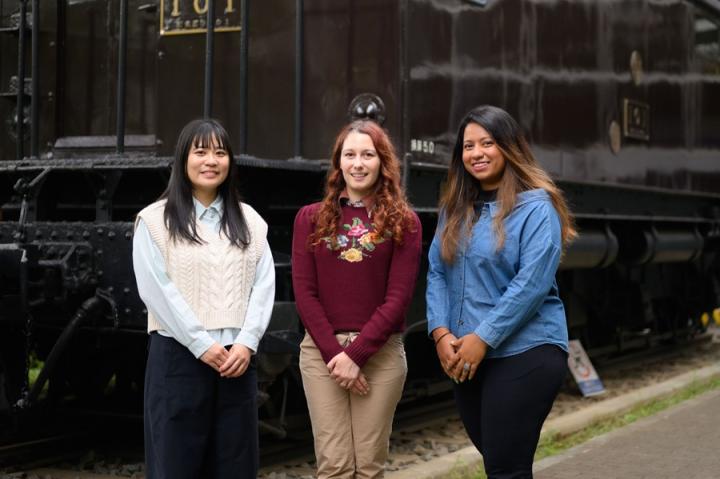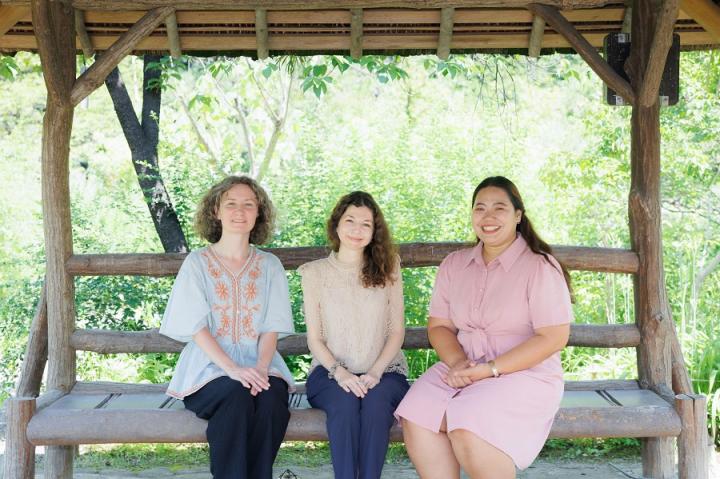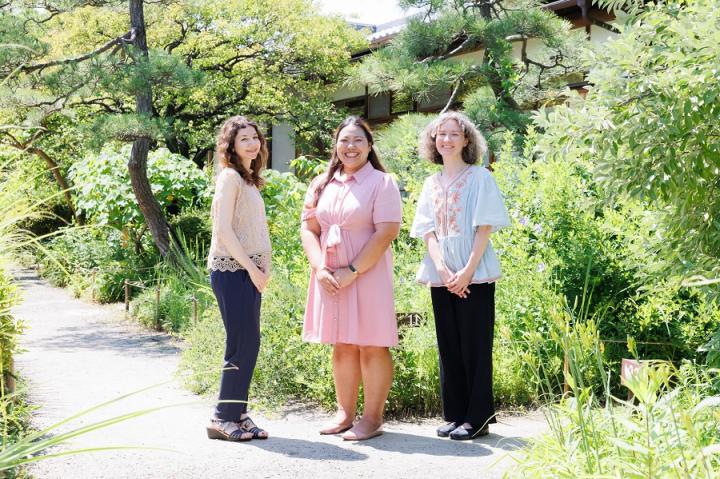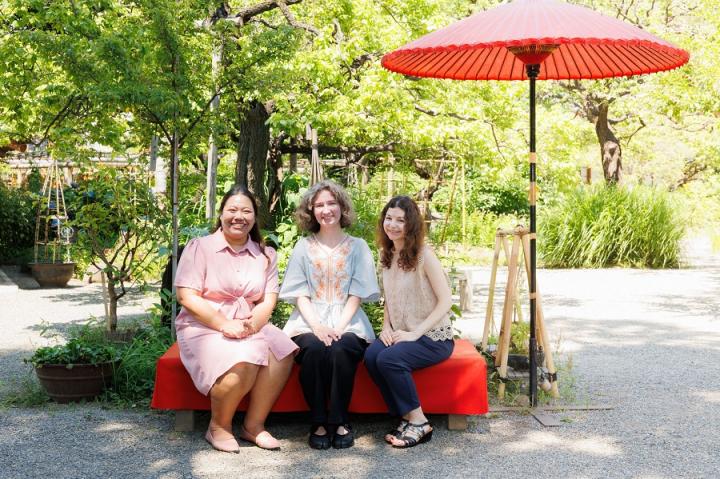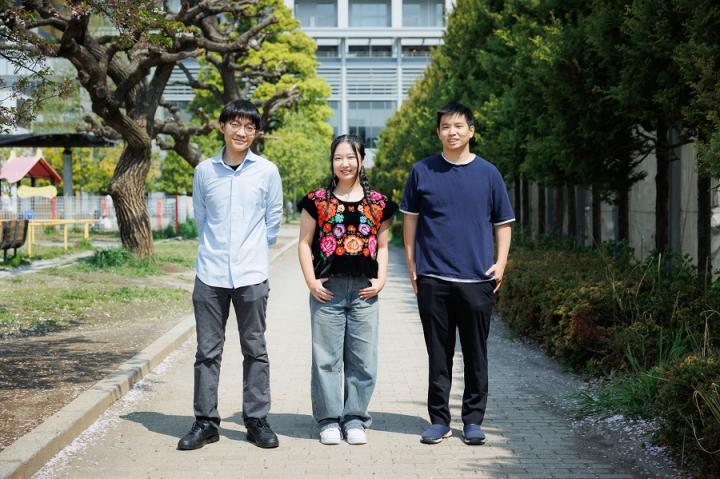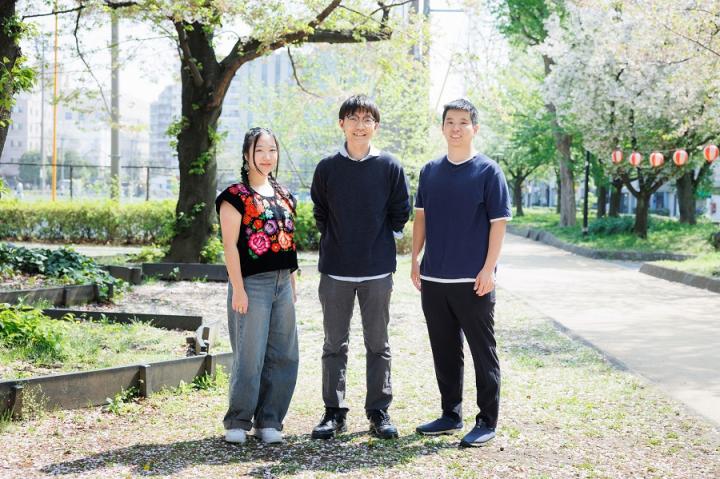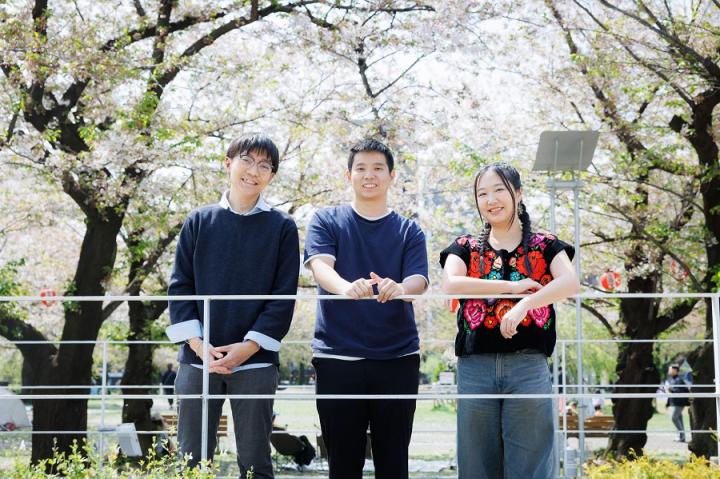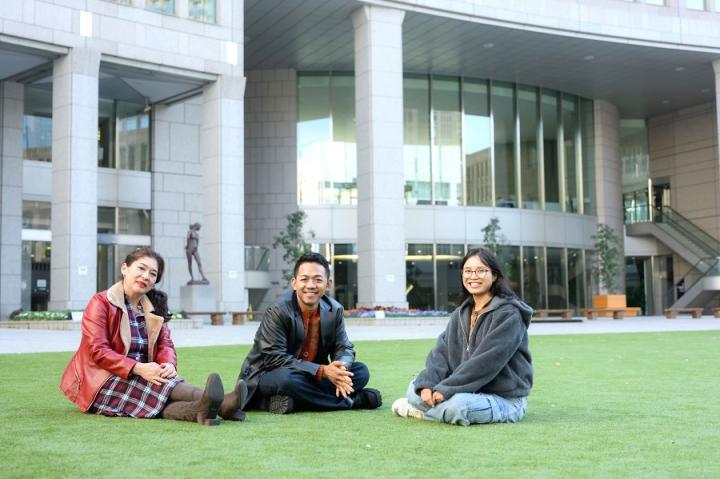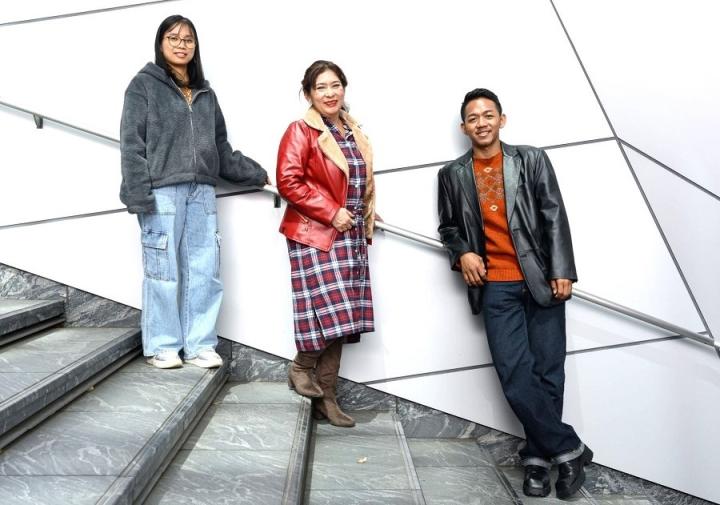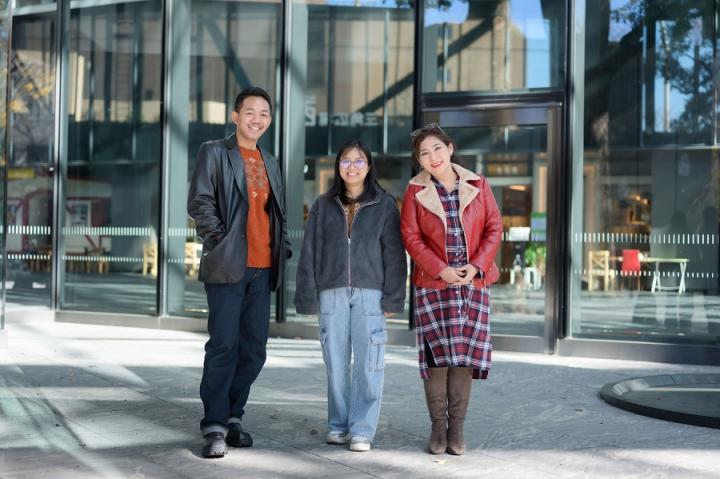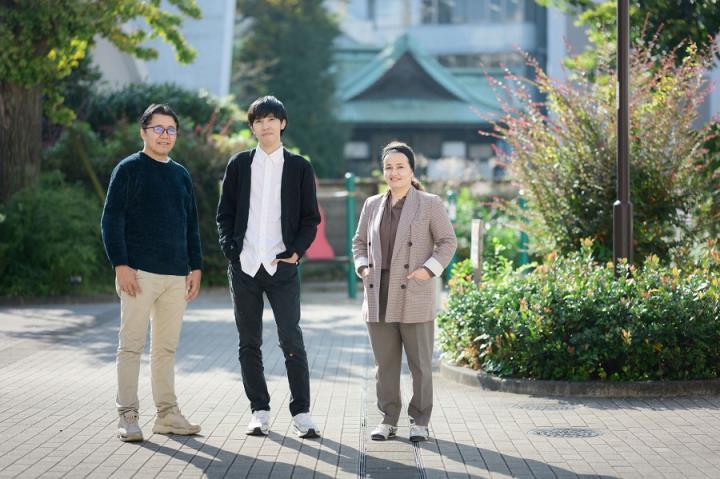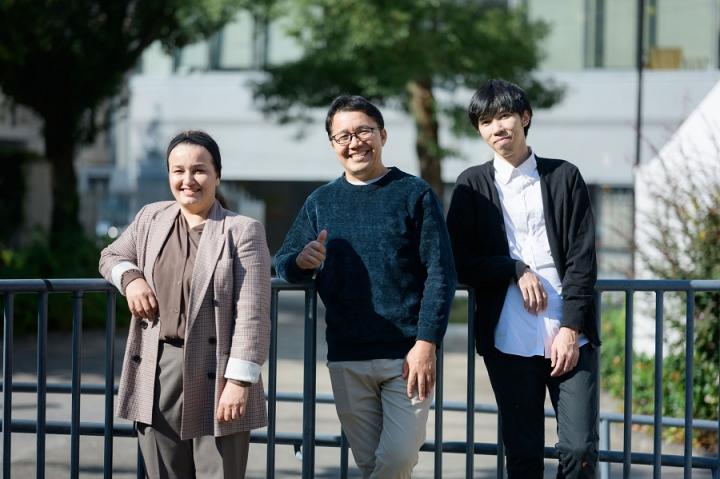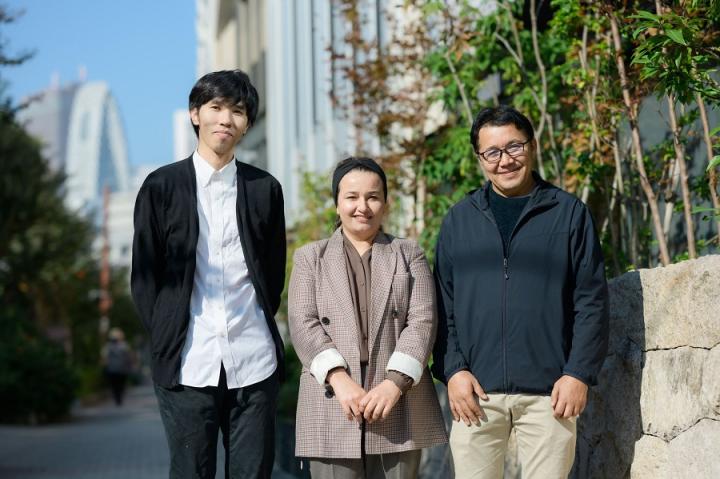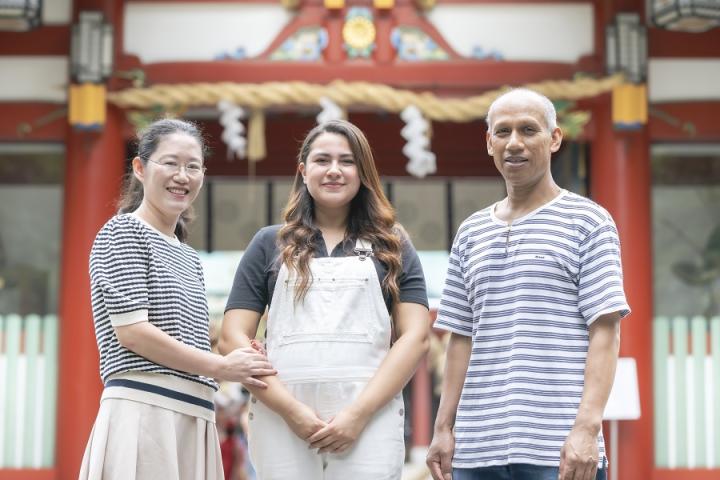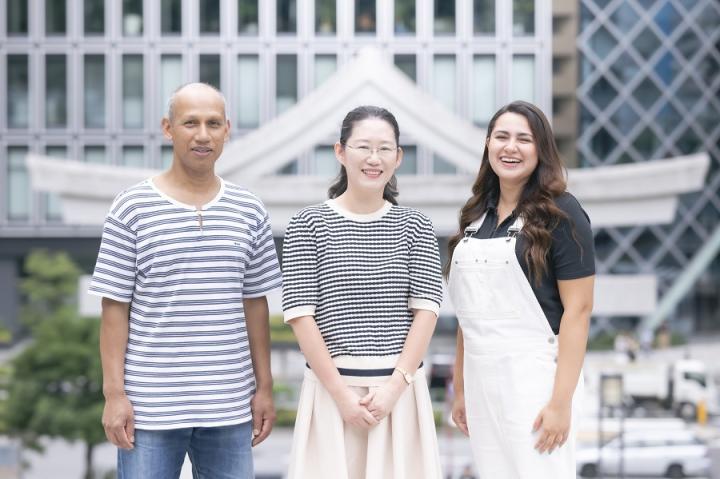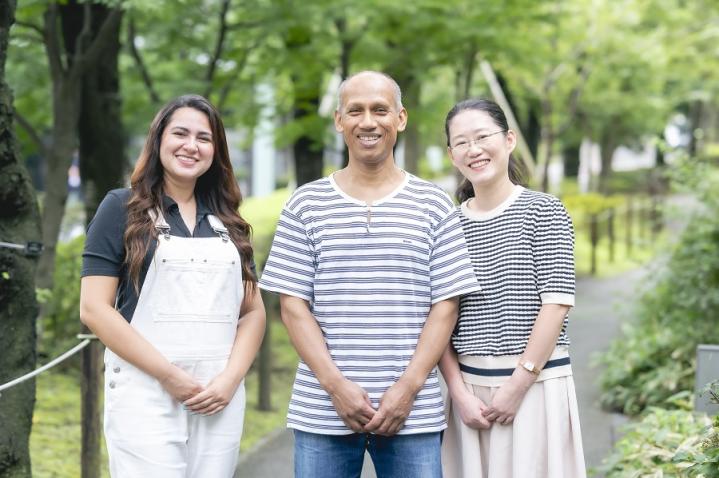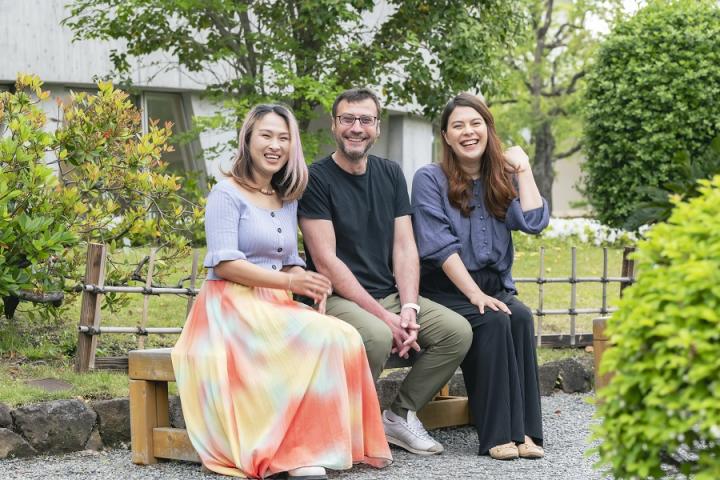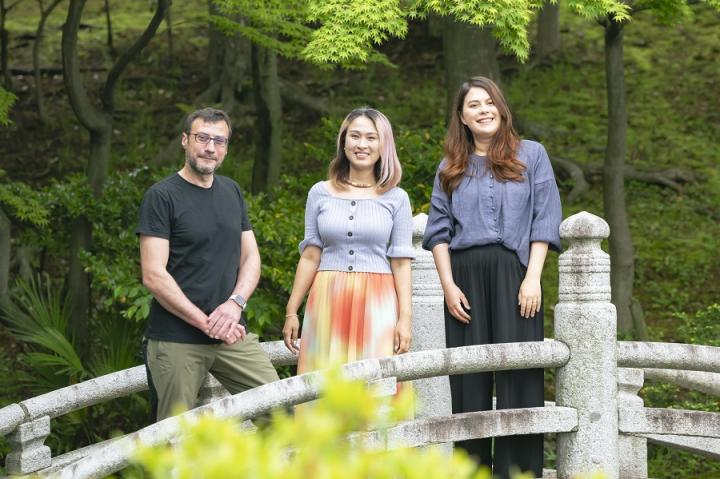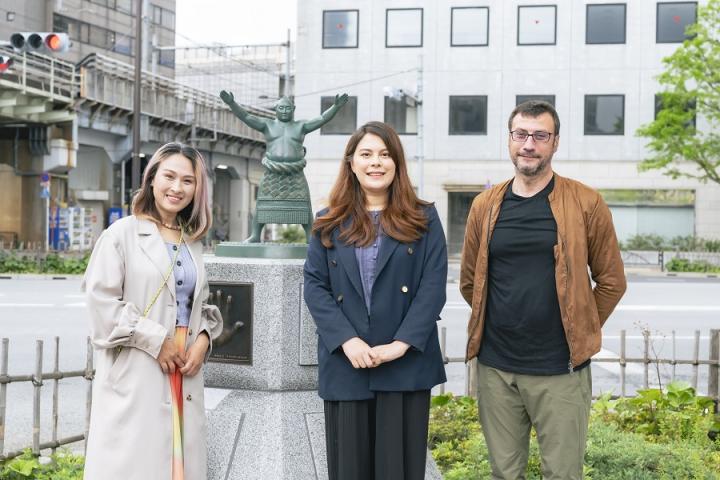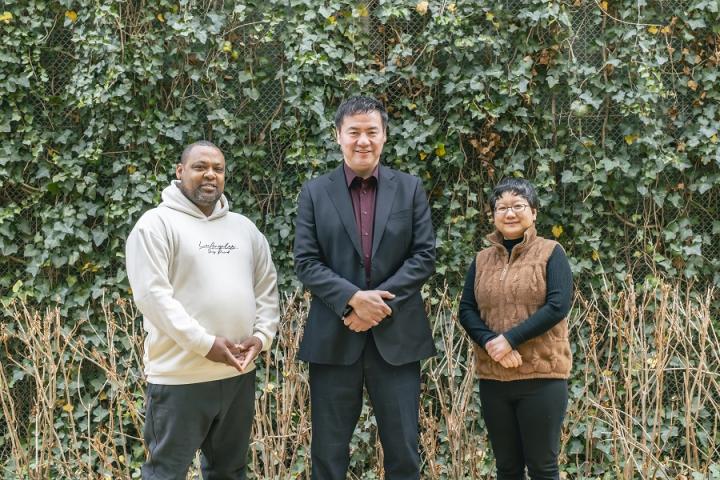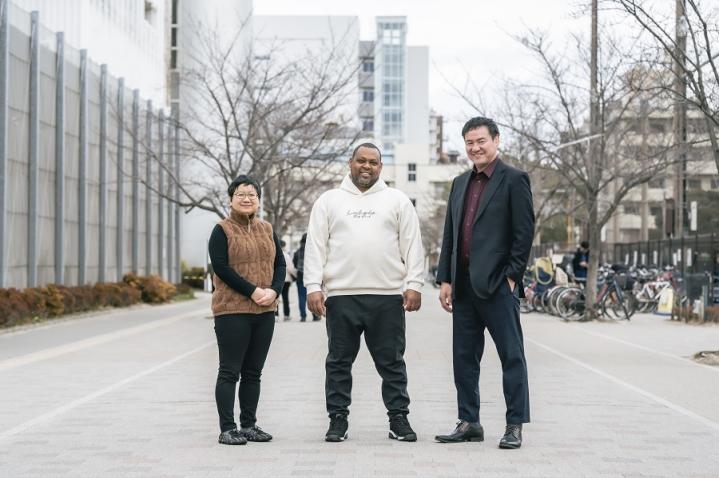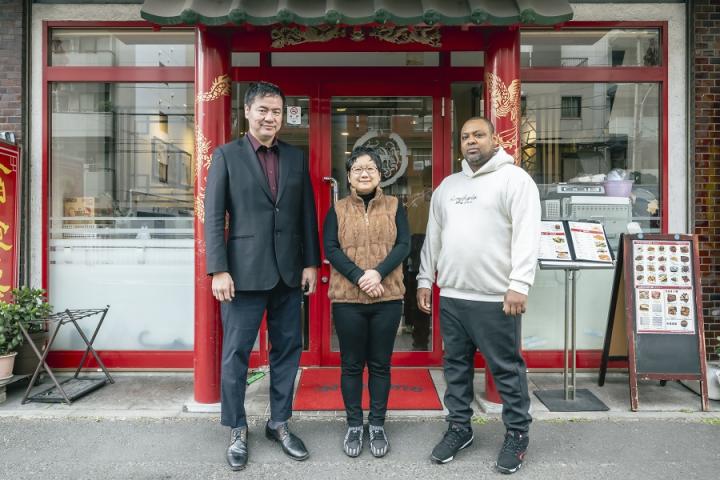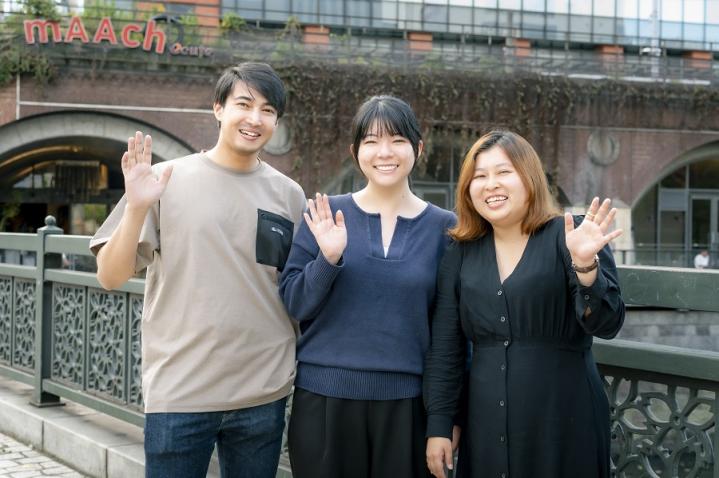-
People Involved in the Tourism and Travel Industry ③The Future of Japanese Tourism
- Intercultural Crosstalk
In this interview, we spoke with 3 people who have taught Japanese in their respective countries about Japanese language education in their countries, their experiences as teachers, and the challenges and rewards of their work.
-
People Involved in the Tourism and Travel Industry ②The Appeal of Tokyo as a Travel Destination
- Intercultural Crosstalk
This round table discussion was with 3 participants involved in Japan’s tourism and travel industry from their respective roles as an influencer, a railway company worker, and a travel agency/blogger. In this issue, we will hear about the appeal of Tokyo as a travel destination from the perspectives of these 3 individuals who travel around the world.
-
People Involved in the Tourism and Travel Industry ①Inspiration for Pursuing Japan's Tourism and Travel Industry
- Intercultural Crosstalk
We present a series of 3 round-table discussions featuring “People Involved in the Tourism and Travel Industry.” The number of foreign tourists visiting Japan and Tokyo continues to grow year after year. This time, we spoke with 3 individuals who are engaged in Japan's tourism and travel industry, leveraging their own backgrounds and experiences. In round 1, we ask them about what sparked their interest in Japan's tourism and travel industry.
-
People Who Taught Japanese in Their Home Countries ③Living in Japan as a Japanese Teacher
- Intercultural Crosstalk
We asked the 3 participants, who grew up overseas and came to Japan, the country of their roots, about their current jobs and their dreams and goals for the future.
-
People Who Taught Japanese in Their Home Countries ②About Teaching Japanese
- Intercultural Crosstalk
In this interview, we spoke with 3 people who have taught Japanese in their respective countries about Japanese language education in their countries, their experiences as teachers, and the challenges and rewards of their work.
-
People Who Taught Japanese in Their Home Countries ①Motivation for Becoming a Japanese Language Teacher
- Intercultural Crosstalk
Round-table discussions with "People who taught Japanese in their home countries" will be presented in this 3-part series. Just as there are Japanese teachers teaching English in Japan, there are many foreign teachers teaching Japanese around the world. In the first episode, we hear from 3 participants about their reasons for choosing to become Japanese language teachers and their backgrounds.
-
People Who Have Come to Japan, The Country of Their Roots③ -Future Dreams and Goals-
- Intercultural Crosstalk
We asked the 3 participants, who grew up overseas and came to Japan, the country of their roots, about their current jobs and their dreams and goals for the future.
-
People Who Have Come to Japan, The Country of Their Roots② -Japan and I-
- Intercultural Crosstalk
The three participants came to Japan, the country of their roots, with their own thoughts and feelings. In round 2, we asked them about their impressions of Japan, their feelings upon arriving in Japan, and how their thoughts on identity have changed.
-
People Who Have Come to Japan, The Country of Their Roots① -The Country Where I Was Born and Raised-
- Intercultural Crosstalk
We will be presenting a three-part series of round table discussions with "people who have come to Japan, the country of their roots." There are many people living overseas who have roots in Japan. In this series, we will hear from 3 people who were born and raised overseas but chose to come to Japan, the country of their roots, of their own volition. They will talk about their reasons for making that decision, the countries where they grew up, and their thoughts on their identity.
-
Caregivers From Abroad③ -The Future of the Care-giving Profession-
- Intercultural Crosstalk
We asked 3 caregivers working in the field to talk about the future of the care-giving profession, the rewards of working in the field, and whether they want to continue working in the field.
-
Caregivers From Abroad② -Life as a caregiver-
- Intercultural Crosstalk
Caregivers work shifts, so the time they start work varies from day to day. How do they manage their health and what kind of life do they lead? How do they spend their days off? We also asked them about the difficulties they face in continuing to work in a field that is said to be short of staff.
-
Caregivers From Abroad ① -How I Came To Work As a Caregiver And The State Of Caregiving Industry In My Country Of Origin-
- Intercultural Crosstalk
We will be delivering a 3-part series of round-table discussions with caregivers from abroad. The number of foreign residents working in the elderly care industry is increasing year by year. Amidst the current shortage of care workers, we spoke to 3 people who are actually working hard in the care industry about how they got into it, what their jobs entail, and their thoughts on the work.
-
Researchers From Abroad③ -About the Research Environment-
- Intercultural Crosstalk
The research environment and school systems differ from country to country. What are the differences between Japan and your home country? We asked the participants to talk about the differences they have noticed in their research, and the good things about doing research in Japan.
-
Researchers From Abroad② -About Life in Japan-
- Intercultural Crosstalk
We asked 3 researchers living in Japan about how they spend time in their daily lives. As their research topics and environments differ, it seems that the time they spend on research and how they spend their days also differ. We also asked them about the things they do to take a break from their research and the things they enjoy about their lives.
-
Researchers From Abroad① -Please Tell Us About Your Research Life in Japan-
- Intercultural Crosstalk
We will be bringing you a 3 part series of round-table discussions with researchers from abroad. There are people in Japan researching in a variety of fields. Many foreigners also come to Japan to research. What kind of research are they doing? And what kind of life are they living? We asked them about the reasons for their research and why they chose Japan as their place of research.
-
About Community-based Japanese Language Classes and Support -What Was Gained From the Community-Based Japanese Language Classes-
- Intercultural Crosstalk
We wondered how the things they learned at the community Japanese language classes were useful in their current lives. The topics of discussion ranged from how long they had been taking the classes to what they thought was good about it. They also shared their ideas of what kind of Japanese language classes they would like to see in the future.
-
About Community-based Japanese Language Classes and Support -The Place Called "Community Japanese Classes"-
- Intercultural Crosstalk
We are pleased to present a 3 part series of round-table discussions on "work and activities that connect their home countries with Japan". In this second session, we will be discussing their work and activities. What kind of reactions do their family and friends have to their work and activities? They also talked about how their own lives and the environment around them had changed as a result of continuing with their work and activities.
-
About Community-based Japanese Language Classes and Support -the First Encounter with a Community-based Japanese Language Class-
- Intercultural Crosstalk
Over the next 3 months, from this month until November, we will be bringing you a 3-part series of roundtable discussions on the topic of “Community-based Japanese Language Classes and Support”. The 3 participants in this discussion have experience of attending community Japanese language classes or Japanese language classes at school. In the first round, they talked about their first encounter with a community-based Japanese language class.
-
Work and Activities That Connect Japan and Their Home Country -About Future Plans-
- Intercultural Crosstalk
We are pleased to present a 3 part series of round-table discussions on "work and activities that connect their home countries with Japan". In this second session, we will be discussing their work and activities. What kind of reactions do their family and friends have to their work and activities? They also talked about how their own lives and the environment around them had changed as a result of continuing with their work and activities.
-
Work and Activities That Connect Japan and Their Home Country -About Work and Activities-
- Intercultural Crosstalk
We are pleased to present a 3 part series of round-table discussions on "work and activities that connect their home countries with Japan". In this second session, we will be discussing their work and activities. What kind of reactions do their family and friends have to their work and activities? They also talked about how their own lives and the environment around them had changed as a result of continuing with their work and activities.
-
Work and Activities That Connect Japan and Their Home Country -About First Encounter with Japan-
- Intercultural Crosstalk
We are pleased to present a 3 part series of round-table discussions among 3 people who continue to engage in "work and activities that connect their home countries with Japan". The 3 are living in Japan and are working and conducting activities that bridge their home countries and Japan in a variety of ways.
-
A Conversation with Foreign Restaurant Owners -About Daily Life of a Foreign Restaurant Owner-
- Intercultural Crosstalk
In the final session of our three-part series of round-table discussions with foreign restaurant owners, we asked them to talk about the "daily life of a foreign restaurant owner". They probably spend most of the day in the restaurant, since there are many tasks such as preparing food before opening and cleaning up after closing. The COVID-19 pandemic must have caused some changes in their lives as well. We asked the 3 participants, who are always busy working, to talk about their restaurant's business days and how they spend their days off.
-
A Conversation with Foreign Restaurant Owners -About Preparations for Opening a Restaurant-
- Intercultural Crosstalk
We are pleased to present a 3-part series of roundtable discussions with foreigners that are restaurant owners. The second discussion is on "Preparations for Opening a Restaurant”. The 3 of them decided to open their first restaurant in Japan. In the beginning, there were some areas they had to figure out by experimenting. They had to prepare for many things before opening the restaurant, such as what kind of restaurant to open and how to get many people to come to the restaurant. We asked the 3 to look back and talk about their experiences.
-
A Conversation with Foreign Restaurant Owners -About Having a Restaurant in Tokyo-
- Intercultural Crosstalk
We are pleased to present a three-part series of roundtable discussions with foreign residents of culinary establishments. In Tokyo, you can eat food from all over the world. It is very difficult for Japanese people to own their own restaurant, but it is a different kind of hardship for foreigners living in Japan to open and manage a restaurant. In this first issue, we will talk about opening a restaurant in Tokyo. They talked about how they came to open a restaurant in Japan, how they prepared for it, and the challenges they faced.
-
A Conversation with Young People Connecting Japan to the World -About Identity-
- Intercultural Crosstalk
In this 3rd session with the youth connecting Japan to the world, we discussed "About Identity". There might be cases where people feel hurt by seemingly innocent questions like, "Are you half?" Their experiences crossing borders, living amidst different languages and cultures from a young age, lead to deep identity reflections on "Who am I?"
-
A Conversation With Young People Connecting Japan to the World -About School and Further Education-
- Intercultural Crosstalk
In the second part of our conversation of young people connecting Japan to the world, we will introduce the topic of "School and Further Education". It seems that schools and regions in Japan differ considerably in their acceptance and support systems for children with foreign connections, such as Japanese language support and information on higher education. The participants talked about what they didn't know at the time and what they found troubling or perplexing in retrospect.
-
A Conversation With Young People Connecting Japan to the World -About Language-
- Intercultural Crosstalk
We are pleased to present a three-part series of round-table discussions with young people who have overseas connections. This time, we asked three young people who became friends in their 20s to speak in a relaxed atmosphere. Although they now live in Japan, they have crossed borders and grown up in a variety of environments. What have they experienced, and how are they feeling now? In the first round, we talked about "language". Let's take a look at the cross-talk between the three as they reflect on their childhoods speaking different languages.
-
About Work and Holidays -Holidays and Leisure Time-
- Intercultural Crosstalk
This is a three-part series on work and holidays. In this third part, we talked about holidays and leisure time. The discussion expanded to such enjoyable topics as "What do you do on weekends and long vacations? How do you enjoy your spare time?" The last session of the series was a good opportunity to relax and have a good conversation.
-
About Work and Holidays -Workplace-
- Intercultural Crosstalk
In this second session of our three-part series on work and holidays, we talked about the workplace. The topics of discussion expanded rapidly, including what surprised them when they started working, how they spend their lunch breaks, overtime work, benefits, and side jobs. You will also see the differences between each country and Japan.
-
About Work and Holidays -Work-
- Intercultural Crosstalk
This is a three-part series about work and holidays. We discussed “work” this month. With more and more foreigners living in Japan and working for Japanese companies, what do they feel? The three participants talked about how they came to work in Japan, how they found their jobs, and the difficulties and rewards of working in Japanese society.

